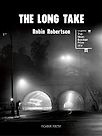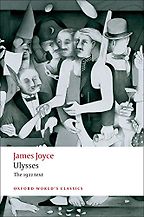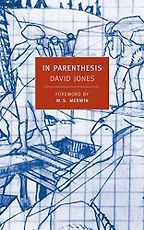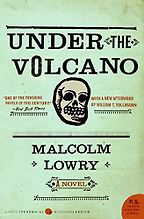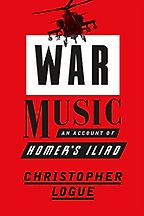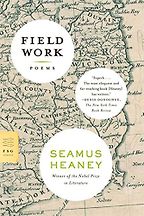Do you have any rituals, superstitions, or habits when it comes to writing?
Having a full-time job, I seldom get a chance to write, so it’s hard to remember what I’m like when I do. All I really need is silence and solitude.
Did you always want to write fiction?
I never set out to write fiction, and consider The Long Take to be a long narrative poem—though it is a ‘novel’ because it is novel: it is ‘new’.
Do you think fiction offers something that nothing else can?
Narratives are ways of seeing ourselves and our lives from a different perspective, so this gives weight to the importance of the oral tradition—primarily built from poetry and song—and which fiction has grown out of. All important art changes us, usefully: jolting our perspective and enlarging our gaze.
How long did it take you, from conception to the final touch, to produce the book for which you have been shortlisted?
Four years, or a lifetime. Take your pick.
Do you share your work-in-progress with anyone?
I showed a close-to-final draft to my first reader, and old friend, James Lasdun, and to my partner, Karin Altenberg. This is necessary, as writers generally lack objectivity.
Who do you write for?
Myself.
Was there a particular aspect of the shortlisted work that you struggled with?
I struggled with it all. That’s what writing is: a struggle with oneself.
Did you surprise yourself—or did things take an unexpected turn—at any point in the process of writing the book?
One of the points of writing is to surprise yourself; you know you’ve done something right if that happens.
What was the first word or sentence you wrote for this book, and does it come first or appear elsewhere, if at all, in the finished work?
There are lines in there that go back to my first notebooks, but which didn’t fit in—to anything—till now.
Please pick a line at random from page 99 of your book, in tribute to Ford Madox Ford, and reproduce it for us here:
“Got no feelings, in any way whatsoever, for that evil bitch.”
Please tell us about your first choice:
Ulysses by James Joyce. Why have you chosen it?
An obvious choice, but this novel is still—after nearly a century—powerful, innovative and exhilarating. There is more going on in one sentence in Ulysses than there is in most contemporary novels.
Your second book isn’t a novel, but a poem:
In Parenthesis by David Jones.
Why does it make your list?
An extraordinary first-hand account, in poetry and prose, of the author’s time as a private in the Battle of the Somme. Jones is the great lost Modernist, and was as important an artist as he was a writer.
Your third book is:
Under the Volcano by Malcolm Lowry.
What attracted you to this work?
It’s the harrowing story of the dissolution and demise of an English consul, Geoffrey Firmin, in a small Mexican town on the Day of the Dead. An incredibly moving cautionary tale.
Your fourth choice is:
War Music by Christopher Logue.
Tell us about it.
War Music by Christopher Logue comprises versions of Homer’s Iliad, 1981. It’s a modern, cinematic re-rendering of the Greek epic which manages to re-cast Homer’s battles for twentieth-century readers, suggesting (as Jones does) that all wars are the same wars.
Finally, talk about your fifth and final book:
Field Work by Seamus Heaney.
Why is this collection in particular important to you?
This is my favourite of all his books, and the one that sees his poetry loosening, and tightening, into work of international stature. Written at a fresh distance from his home in the North of Ireland and the Troubles: these are limber, rangy, exquisite poems.
This year marks the 50th anniversary of the Man Booker Prize. Which previous year’s winner (or indeed, shortlisted work) would you recommend and why?
I would recommend any of the following:
The Vivisector, Patrick White
Waterland, Graham Swift
The Handmaid’s Tale, Margaret Atwood
The Book of Evidence, by John Banville
A Disaffection, James Kelman
Amongst Women, John McGahern
Reading in the Dark, Seamus Deane
Grace Notes, Bernard MacLaverty
The Gathering, by Anne Enright
Eileen, Ottessa Moshfegh
What have you read lately, either for the first time or in re-visiting, that has gripped you and why?
One Lark, One Horse (2018) is Michael Hofmann’s first new collection in nearly twenty years. Appearing shortly, into the cacophonous white noise of self-promotion that currently passes for poetry, Hofmann shows us again how to write.
What books are on your bedside table at the moment?
The three novels on the shortlist that I haven’t yet read.
October 9, 2018
Five Books aims to keep its book recommendations and interviews up to date. If you are the interviewee and would like to update your choice of books (or even just what you say about them) please email us at [email protected]
Support Five Books
Five Books interviews are expensive to produce. If you've enjoyed this interview, please support us by donating a small amount.
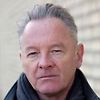
Robin Robertson
Robin Robertson is from the north-east coast of Scotland. He has published six books of poetry and received a number of accolades, including the Petrarca-Preis, the E.M. Forster Award, the Roehampton Poetry Prize, and all three Forward Prizes. His selected poems, Sailing the Forest, came out in 2014.

Robin Robertson
Robin Robertson is from the north-east coast of Scotland. He has published six books of poetry and received a number of accolades, including the Petrarca-Preis, the E.M. Forster Award, the Roehampton Poetry Prize, and all three Forward Prizes. His selected poems, Sailing the Forest, came out in 2014.

